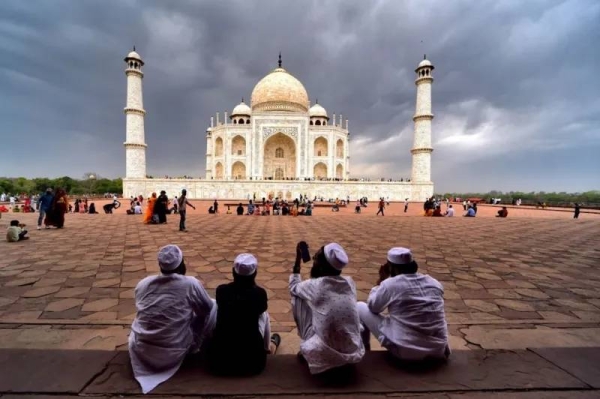
Under this scheme, the Muslim community in the district would be chopped up between different districts and lose its economic and political contiguity to accommodate the objectives of the Hispanic leaders
Arab and Muslim Americans were legally counted as “white” in the last census, contributing to their under-representation
WISCONSIN: Leaders in the Muslim-American community in Milwaukee in the state of Wisconsin are hoping to achieve representation in the city government to reflect their growing numbers and needs.
The city of Milwaukee’s diverse Muslim community is concentrated in the 13th district and is seeking to have its own representation in the city council, known as the Common Council, in which 15 districts are represented by 15 aldermen. However, differences over representation with the Hispanic-Latino community, which seeks to increase its own presence in the city government, has brought the issue to public attention.
Arab and Muslim Americans were legally counted as “white” in the last census, contributing to their under-representation. Community leaders say that the 13th district has tens of thousands of Muslim residents whose national origins lie in the Middle East and other parts of the world.
After the US national census last year, the Hispanic and Latino community, which controls two other districts, wanted to represent the 13th district as well. This reflects a desire to have more representation, as a result of its own growing population, once redistricting is approved by the city government. This situation has created a conflict about who should be representing the 13th district.
The Latino community had sought to have a Hispanic-majority or near-majority 13th district by advocating the transfer of heavy Latino areas into the 13th district and removing areas with the least number of Latinos.
Under this scheme, the Muslim community in the district would be chopped up between different districts and lose its economic and political contiguity to accommodate the objectives of the Hispanic leaders.
Janan Najeeb, a community leader and president of the Milwaukee Muslim Women’s Coalition and director of the Islamic Resource Center, told Arab News that the Arab and Muslim community has no problem with the Latino community — in fact she considers them natural allies who have shared the same struggles.
Najeeb said that leaders from the Muslim and Hispanic communities have had many meetings to resolve their differences in a way that will benefit both groups. She added that all the redistricting maps submitted by the leaders of the Hispanic community proposed remapping the wards or areas that were heavily Muslim and dispersing them in different areas, causing them to lose their concentration in the 13th district. The plan would ultimately deprive the Muslim community of the opportunity to have a Muslim representation in the city government, she said.
Najeeb said that the Muslim community was still expanding and it would be unfair to let another ethnic group represent them when they could represent themselves.
“We want a Muslim representation in the city that would reflect our own interests and issues,” she said.
Milwaukee’s city government has not passed the Hispanic community’s proposed remapping and redistricting, leaving the original district map intact. This is considered a major win for the Muslim community as it leaves its areas part of one district.
The 13th district is home to the largest concentration of Muslims in Wisconsin. The community is very mixed, reflecting the diversity of the Muslim world itself as many people have roots in the Middle East, US, Africa, Asia and Europe. It also includes a growing number of Latino Muslims.
There are more than 100 Muslim businesses and institutions in the district, with three mosques including the Islamic Society of Milwaukee, hosting the largest mosque in Wisconsin, and the Salam School with 1,000 students on two campuses, civic institutions, pharmacies and medical clinics.
Despite its growing numbers and visible presence, the Muslim community not just in Wisconsin but across the US cannot select a category in the census to reflect its ethnicities or national origins; instead it had to select the “white” category in the 2020 census.
The Arab and Muslim community in the US has long fought to have a “MENA” category to reflect Americans who come from the Middle East and North Africa. Should this designation be accepted in the future, Arab and Muslim communities across the US would benefit from many federal programs aimed at supporting minority groups.
“Ultimately, the real issue for us is not with the Hispanic community, whom we consider allies and friends, rather with the designation of us as “white” — thus depriving us of proper representation and many state and federal benefits,” Najeeb said.












